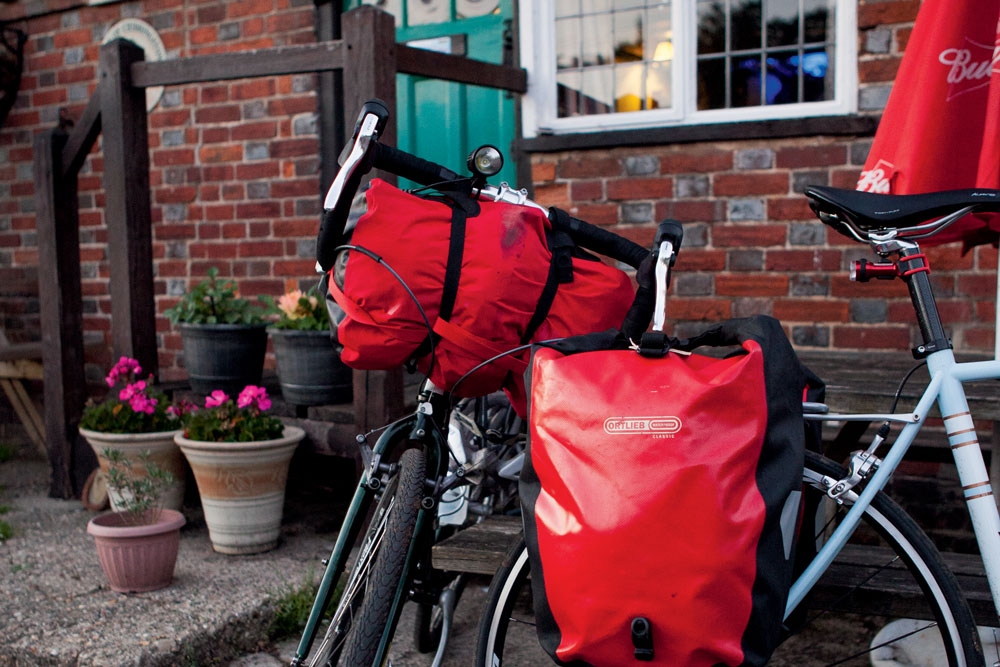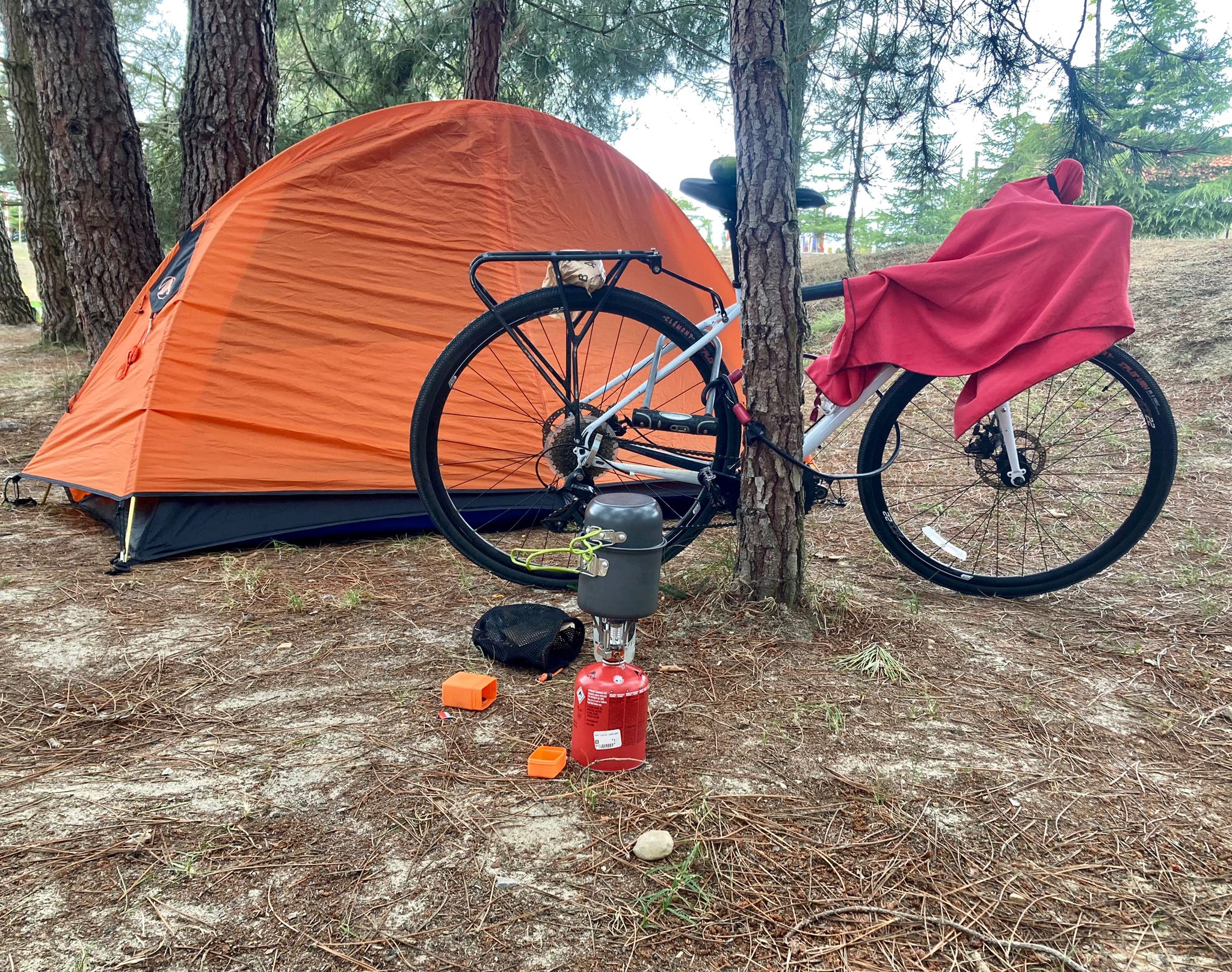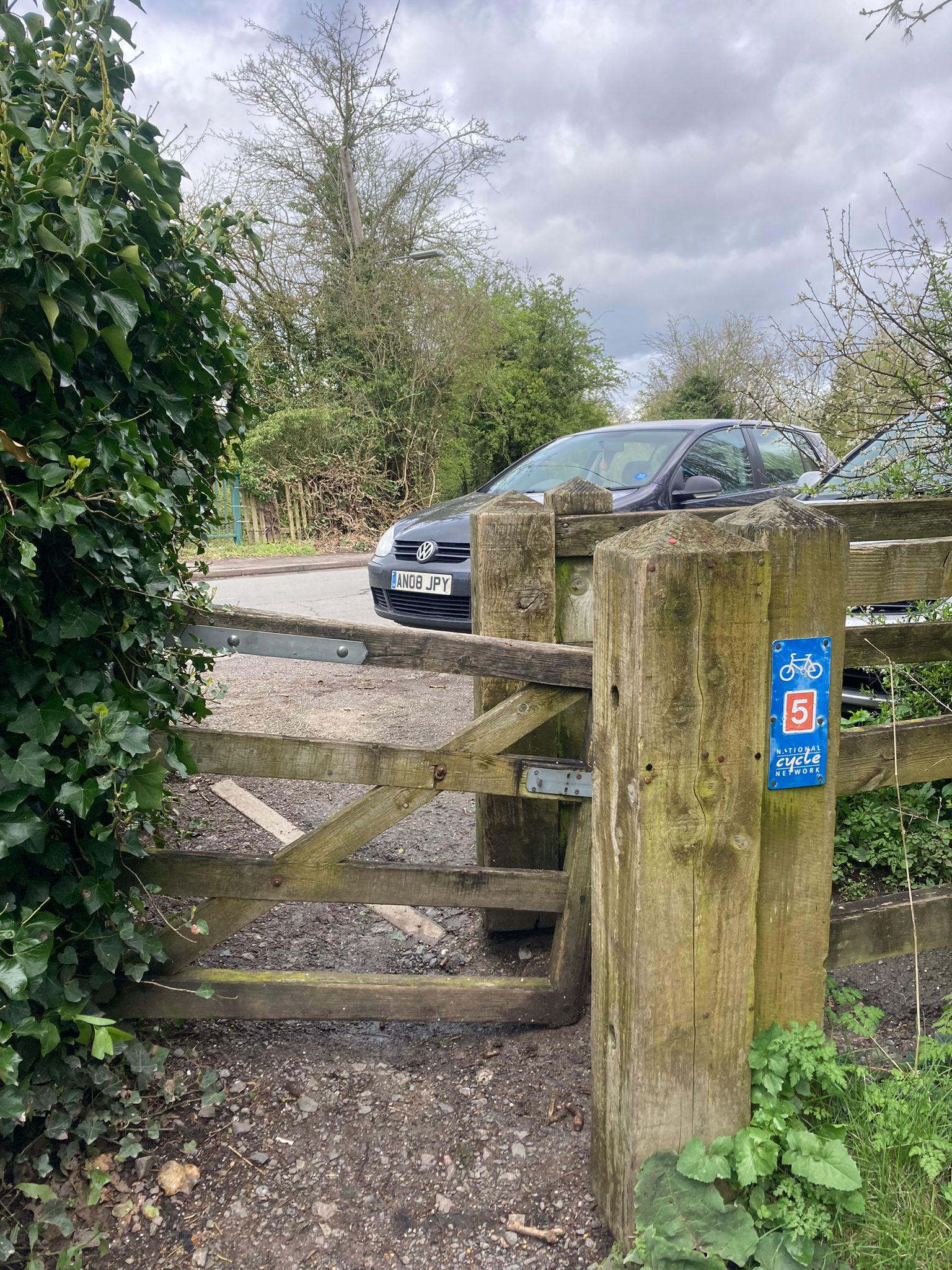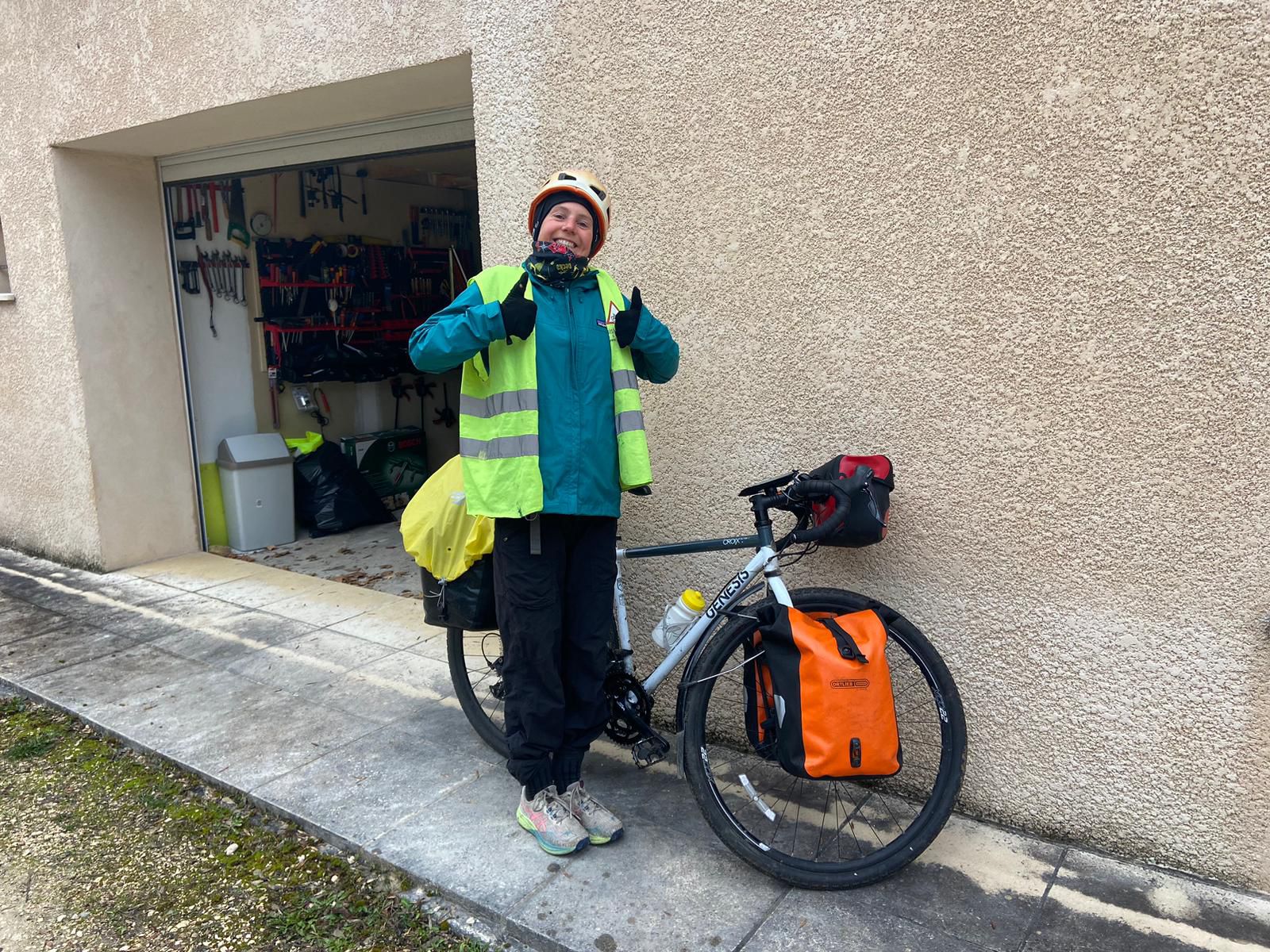Bikepacking in the UK was more of an adventure than I bargained for, but the effort paid off
Having explored further afield, Isobel returned to discover that the best roads and trails had been closer to home, all along - they'd just been hiding under standing water

I have just returned from a solo-cycle trip which took me from South-eastern Turkey to England. I received many questions from people I met during the journey, frequently revolving around my gender and lack of companionship; however, one of the most common inquiries was about the potential for cycle touring (or, bikepacking) in the UK. Everyone wanted to know where to go, what to see and how to get there.
I was puzzled. I began to wonder, how had I missed apparent treasures closer to home? So, after cycling thousands of miles over multiple countries, I ignored the “get a real job!” groans from friends and family, and alighted the ferry at Dover and set out to continue to out-pedal adult commitments across some of the UK’s bicycle routes.
Having cycled over fenland, across ridgeways and coastal paths, over mountains and through major cities, criss-crossing England and Wales on road and gravel paths, I discovered that bikepacking/touring in the UK was not as straightforward as predicted. My bike is clogged with mud, my shoes destroyed by floodwater, and I think I may have tinnitus from the relentless wind, but the effort was worth it.
If you fancy giving it a go - I’ve got plenty of tips…
Expect single track adventures
Quickfire tips

1) If selecting a river or canal side route, wider and more resilient tyres are definitely advised. I would caution anybody travelling with a recumbent or trailer against choosing these sections.
2) If you need to hop on a train, explore the costs of trains to neighbouring towns and complete the journey by bike. The price difference between trains is astonishing.
3) Cycling equipment can be expensive. Yet, thanks to the proliferation of second hand platforms (EBay, Facebook marketplace, Vinted etc), there are many bargains to be had, especially at this time of year when many are looking to upgrade their existing kit.
4) For those cycling in and out of the UK, boat is the best option. Eurostar requires you to deconstruct your bike and is very expensive.
I have lived abroad for several years, and having returned to the UK, I was astounded by the extent to which the UK’s cycling infrastructure has improved. Cycle lanes and bike parking are unrecognisable.
However, navigating the country by bike still requires perseverance and lateral thinking. For example, riverside routes and canal towpaths offer great traffic-free routes between urban centres, but they’re more single track gravel adventure than the wide, asphalt avenues beside the Scheldt, Danube or Rhône. These waterway routes regularly involve leapfrogging gates, mounting steep cobbled bridges, traversing incredibly narrow passages and other pesky obstacles which made me wonder who had had the audacity to mark this as a ‘bike route’.
This said, it is along these routes, littered with bird nesting sites,18th century locks and interesting narrowboat communities, that I found some of the most intriguing wildlife, historic and cultural sites of the trip.
The latest race content, interviews, features, reviews and expert buying guides, direct to your inbox!
Navigating with the National Cycle Network

The National Cycle Network wasn't always easy to navigate
I used the UK's National Cycle Network when and where I could. Europe’s infamous EuroVelo routes attract cyclists from all corners of the globe; yet, the lesser known National Cycle Network in the UK also offers a great inroad into long-distance touring.
The Network is a nexus of interconnecting routes, marked with blue signposts, which direct cyclists around low traffic, and traffic free roads and paths.
Unlike many routes I had followed in mainland Europe, Britain’s meandering road system means it is not as straightforward as ‘heading in a general direction’ along a single river valley or road. This is where the Network really comes into its own, helping one traverse the regular twists and turns which define cycle touring in the UK.
I found that the Network also provides ideal low-traffic options for entering and exiting major cities, which are often the most complex and dangerous segments of cycle tours. For example, where Komoot, Google Maps and Maps.me encouraged me to utilise some panic-inducing A-roads, using the National Cycle Network I was able to avoid them. Admittedly, sticking to the network is not entirely hassle-free, and it does require a good mobile app or best bike computer when signage mysteriously evaporates in many sections.
Get multi-modal… the cheap(er) way
Britain’s sprawling rail network makes it pretty easy to reach your starting point or skip over sections when the poor weather (inevitably) draws in. However, as many know all too well, train travel is often eye-wateringly expensive, something which cyclists travelling from Germany, Belgium or Holland do not often budget for.
Finding low cost fares can be an art-form, but not impossible, and I dedicated a lot of time trying to find the cheapest options. My biggest piece of advice to others here is to invest in a railcard and check out platforms such as Trainline, where affordable tickets to or from popular start and end points including Dover, Plymouth or Chester can be found.
It is also essential to understand the train operator’s bicycle regulations and facilities. Although bicycles can be carried free of charge, some lines only offer a few bike spaces per train, and they are snapped up well in advance- particularly during the summer months. And, as I found out, station staff cannot be haggled with.
Accommodation does not have to cost the earth!

Isobel ready to roll
Finding an affordable and safe place to sleep at night can be the most complex and pricey part of cycle touring. Little wonder it is often the largest deterrent against a trip for many. However, once you know the array of options available, it is far less daunting.
Given the UK’s ‘variable’ climate, and restrictions on wild (free) camping, finding comfortable and dry shelter does require a bit more forward planning than in many other destinations.
Camping is one option. Wild camping is permitted in Scotland, but largely illegal in England (with the exception of Dartmoor). There are however numerous campsites, in incredible locations; from cliff-top fields in Pembrokeshire to riverside spots in the Dales, and family-run farms in the Peak District. Pitches are often reserved early, so be prepared for disappointment if you do not want to book ahead.
Warmshowers is also a great way to find free accommodation and fantastic company. This website (and app) connects cycle tourers with hosts who open their home as a potential location for travellers to stay, providing a bed, a couch or a camping space in their garden. Now over a decade old, Warmshowers has over 100,000 users, and has grown into a network connecting cyclists all over the world.
For me, it was in fact the people who hosted me on this trip which defined it. I stayed with many fantastic individuals, hearing interesting, and often hilarious stories about their own cycling experiences, and sharing perhaps a few too many glasses of wine, which I definitely felt the next morning.
Have I convinced you?
It’s that time of year again. As the temperatures rise, winds abate, and daylight hours increase, cyclists begin to plan their summer tours. Cycling club group chats and online forums are buzzing with discussions about finding scenic roads across the Alps, the accessibility of Eastern European routes, or how to clinch a bike spot on German trains (the answer is significant forward planning and a bit of fairy dust).
For those without the annual leave or (let’s be honest) disposable income often required for such overseas trips, it is also the season for FOMO.
However, the past few weeks have taught me that you do not in fact need to look so far from home for thrilling bike tours. There is still so much of the UK I am eager to experience by bike… but perhaps next time in better weather!
Isobel Duxfield is currently a freelance journalist and consultant on gender equal mobility for several public sector organisations. She previously worked in Brussels for a sustainable mobility network.